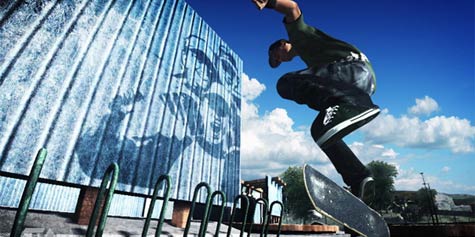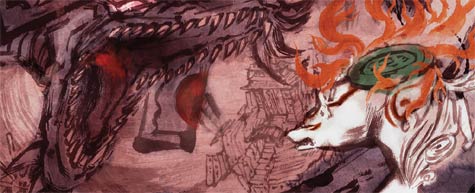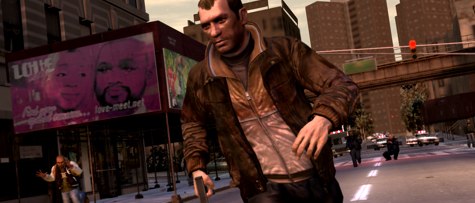
Update: I mistakenly called Jeff “Phil”. No idea where that came from. My bad.
Jeff should be dead.
I met Jeff on the street. He was just a blue blip on my minimap, to begin with. I’d seen him around for a while, but I was now passing right by him, and I was on foot, so I thought I’d head over to see what the blip was all about. And then Jeff started talking, and he wouldn’t shut up.
Jittery, paranoid. Babbling about how his wife’s cheating on him. Kept calling her bad names – bitch, whore. Not cool. But I listen. Anyhow, Jeff wants me to follow her when she leaves the apartment one day, and see where she’s going. Seems like an easy buck, and if he’s wrong, he’ll be glad to know that, right?
So I pull up outside the apartment, and watch her leave. Red Feltzer coupé. Very nice. Tail her for a few blocks, and she pulls up at a café.
I head inside, see her talking to some guy. Smart, suit, smells like a lawyer or something. Anyhow, I keep my distance, a few blocks over, snap a few pictures on my phone. I mean, if Jeff knows the guy, this all might blow over, right? Can’t help but listen to them. And, sure enough, there’s nothing sinister – not yet, anyhow. Just her, talking to some guy she knows – work colleague, maybe – about how jittery and paranoid Jeff is. How it’s driving her nuts, she’s not sure what to do. No affair, no cheating. Just jittery, paranoid Jeff.
I message him the pics, and he flies off the handle and hangs up. Not exactly cool; let’s just hope it all blows over.
Jeff calls me in the night. I’ve just bought a suit for this interview I’ve got tomorrow, big-shot law firm. Need to look the part. Anyhow, I need some sleep, but Jeff’s just yelling at me, screaming, telling me he needs to see me. He’s in a parking garage near Roman’s new apartment.
Parking garages never bode well.
And there’s no option to say no. No conversation branch, no choice; I picked up the phone and I got landed with Jeff – much like when I wandered up to him and he threw me into a mission. Already, I’m sick of Jeff.
So I go to the garage, pull up inside, and there’s Jeff, jittering about, holding himself. Things aren’t good. “Jeff made a mistake,” he tells me, not realising that talking in the third person is a dead giveaway for crazy. Tells me his wife’s had an accident. What kind of accident, I say. Jeff shows me.
The body is in his nasty little hatchback.
I have met many bad people in Liberty City, but Jeff is the worst. Jeff is not a criminal. He doesn’t deal drugs, he doesn’t rob banks, he doesn’t traffic people. He’s your ordinary-decent-citizen. Jeff’s wife is blameless in all of this. And yet he killed an innocent, decent woman, for no apparent reason, and he keeps talking about her like that, and I can tell that Niko hates Jeff, and feels a bit sick, and I hate Jeff, and feel a bit sick.
Jeff gives me the car keys, and sits on the tarmac, crying. He wants me to dump the body.
I’ve never intentionally killed civilians. No joke. Maybe the odd auto accident, but no shooting. Everyone who’s died by my hand has been cop or crook – somebody who was shooting at me, or who would kill me later if I didn’t kill them now. Those are the rules, right?
Anyhow, Jeff is sitting on the pavement in front of me, and I’m thinking that I don’t want his phonecalls in the night, and I don’t want his guilt, and I don’t want him dragging ordinary, decent people into the kind of shit you shouldn’t even choose for yourself (and heaven knows I’ve tried not to), and I realise that a moral decision is presenting itself to me. And there’s only one moral decision I can make in Liberty City.
I pull out my piece and put three rounds into Jeff. He doesn’t even look up when I draw the gun, he’s too busy crying. Sure, he’s not well, but he’s also gone too far, and I don’t want to have anything more to do with this. He rolls back on the ground, must have hit him in head and torso. I hate, you Jeff.
A black-and-white lights up behind me; must have been prowling the parking garage. I leap into Jeff’s car and head for the river. Doesn’t take much ducking and diving to avoid the single patrol car and lose the heat. Now I’ve just got to dump this car and dump the body. He didn’t even put it in the boot; it’s lying around on the backseat, and I can’t avoid seeing it as I’m driving. Still gives me that lump in my throat.
Towards the river, must be barrelling along at about 40. I lurch off the road, head straight for it. It’s hard judging distance at speed, and I throw open the door a fraction too late, because rather than rolling out onto the grass, I end up leaping out above the water. The car goes headfirst into the river as I dunk myself in it.
New interview suit, soaked already.
Jeff’s dead. Jeff’s car’s in the river, along with Jeff’s wife’s corpse. Poor Jeff’s wife. Wish I’d never met him.
I clamber out of the river, and head for home; time to catch some sleep before the big interview.
My cellphone rings.
It’s Jeff.
Jeff should be dead. He was dead to me the second he showed me the corpse in the back of the Blista; he was deader when I shot him, watched him crumple. And now he’s on the phone to me again, like nothing’s happened. I can’t describe my anger; all at once, I’m furious.
And the city fades away and the game wells up over me and I want to scream at Jeff, and scream at Rockstar, and empty my pistol into Jeff, tugging on the joypad trigger again and again until the virtual gun clicks dry, so that he can never come back again, never hurt anyone again. I made a choice – a valid choice in the game world – and for the first time in this game it had no repercussions. I’d have taken any amount of heat just to put Jeff down. But the game wouldn’t let me. The game thought he deserved to live. Saddened, I turn the 360 off.
Grand Theft Auto IV is a wonderful game; it resists any tarnishing with terms such as “fetch quests” and “escort missions” by virtue of the solidity and coherence of world it presents. It rises above the stereotypes of previous games and attempts to create genuine characters, however simple or cartoonish. Few of them are truly evil, few of them can ever be redeemed; they all tread the awkward line between survival and violent death.
Jeff was different; Jeff was the first time that I’d met a character I (and, indeed, Niko – the player’s character) found distasteful. For the first time, the game gave me no choice but to take his missions the second I approached him or picked up the phone. I could have coped with Jeff if I felt like I’d had the opportunity to do something – anything – about him. The game gave me that opportunity, and took it away, and it shouldn’t have done that. Not if it wants me to take the “freedom” it offers me seriously.
I’m going to keep playing, but every time my phone rings, I’ll pray it’s not Jeff, and if it ever is Jeff, I’m going to remember what I want to do to him – and why I want to do that to him – before I hit “reject”.
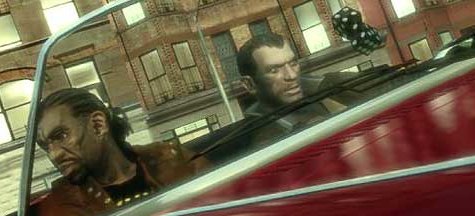

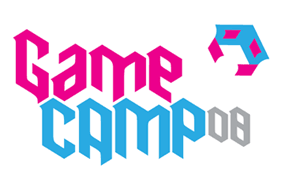 It’s been linked up all over the place, but I may as well link it again: the Guardian are running
It’s been linked up all over the place, but I may as well link it again: the Guardian are running 
